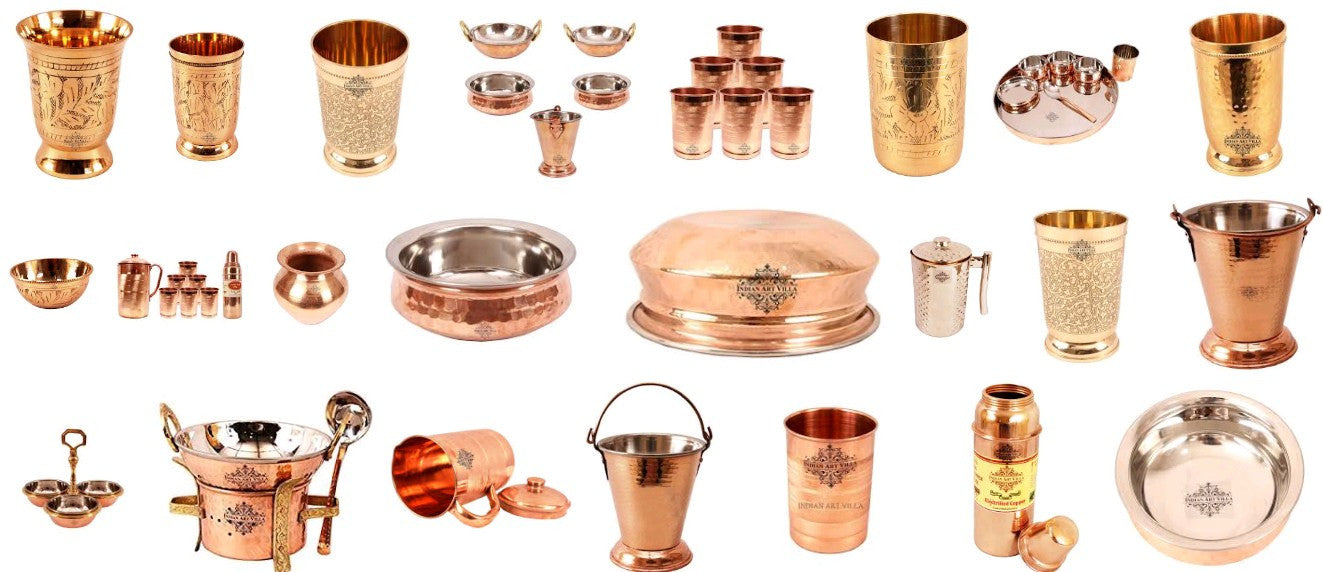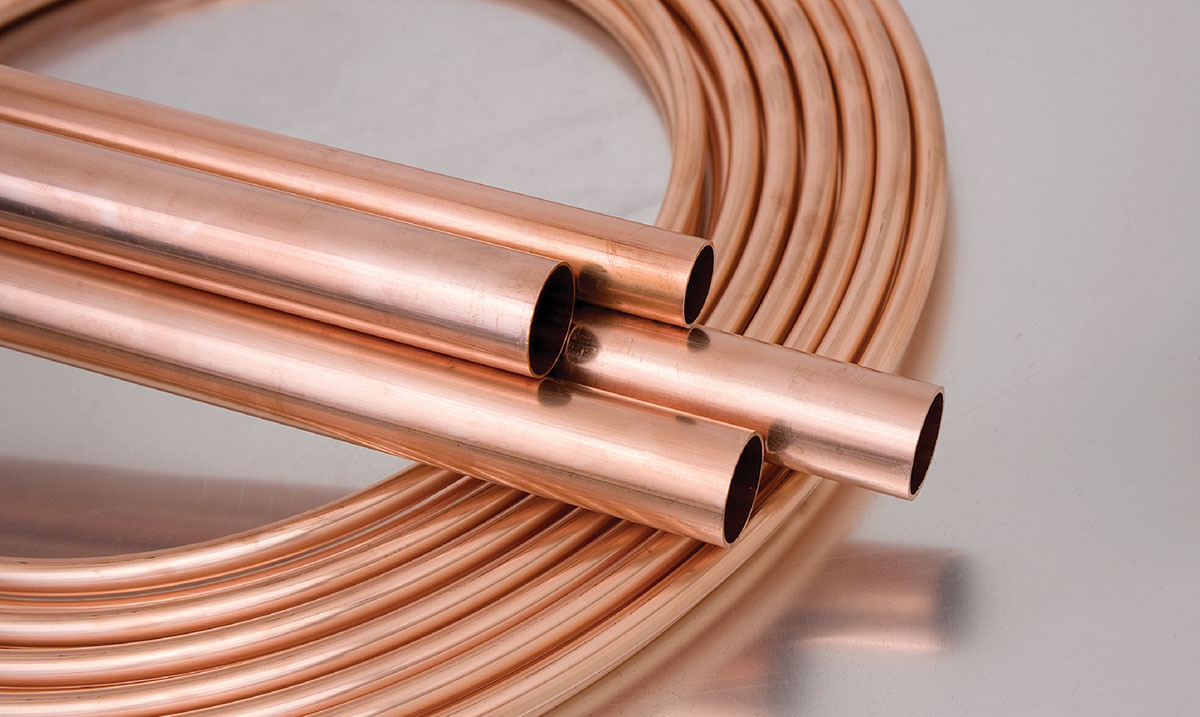Raise Your Craftsmanship with High-Performance Copper Products for Artisans
Raise Your Craftsmanship with High-Performance Copper Products for Artisans
Blog Article
Discovering the Diverse Applications of Copper Products in Modern Industries
Copper products have actually developed themselves as essential parts throughout a myriad of modern-day industries, primarily due to their remarkable conductivity, malleability, and resistance to rust. From enhancing the efficiency of electrical systems to playing a critical duty in eco-friendly power technologies, the flexibility of copper is obvious. Its recyclability settings it as a sustainable choice in manufacturing and electronic devices. As markets progressively prioritize technology and sustainability, the varied applications of copper call for a closer assessment, especially regarding their potential influence on future ecological techniques and technological innovations.
Electric Applications of Copper
Copper is an important material in the electrical sector, accounting for roughly 60% of the overall need for non-ferrous metals worldwide - Copper Products. Its remarkable electrical conductivity, which is virtually twice that of aluminum, makes it the preferred choice for a vast array of electric applications. From circuitry systems in business and domestic structures to high-voltage power transmission lines, copper makes certain performance and integrity in power distribution
Along with electrical wiring, copper is essential to the production of electrical components such as transformers, electric motors, and generators. These components take advantage of copper's thermal conductivity and malleability, important for warmth dissipation and effective efficiency. Copper's resistance to deterioration enhances the life-span and toughness of electrical systems, making it an affordable remedy in the long term.
The development of renewable resource sources, such as solar and wind power, has actually better increased the demand for copper in electrical applications. As industries shift towards sustainable energy services, copper's function comes to be much more important. On the whole, the flexibility and efficiency characteristics of copper strengthen its standing as a cornerstone product within the electrical industry, driving advancement and effectiveness across different applications.
Pipes and Piping Solutions
In modern-day pipes systems, the selection of materials dramatically influences both capability and durability. Copper has become a recommended alternative as a result of its special residential properties, including deterioration resistance and antimicrobial features. These qualities make sure that copper piping stays safe and durable for transporting potable water, a vital consideration in household and industrial applications.
Among the vital benefits of copper in plumbing is its capacity to stand up to heats and pressures, making it ideal for a range of applications, from warm water systems to home heating and cooling networks. In addition, copper's versatility enables less complicated installment in intricate piping layouts, lowering the danger of leakages and failures.
An additional noteworthy benefit is copper's lengthy life-span, often surpassing half a century with appropriate upkeep. This durability not only decreases replacement expenses but also adds to lasting practices by lowering waste. Additionally, copper's recyclability aligns with contemporary ecological standards, advertising a round economic situation within the plumbing market.
Copper in Renewable Resource
The convenience of copper extends past pipes applications, playing a vital role in the sustainable power industry. Its exceptional electric and thermal conductivity makes it an essential material in the production and circulation of renewable resource resources, specifically solar and wind power. In solar panels, copper is made use of in solar batteries and circuitry, facilitating reliable power conversion and transmission. Its resistance to rust makes sure resilient efficiency, which is crucial for making the most of energy output over time.

Additionally, as the international demand for electrical vehicles (EVs) increases, copper's function in battery systems and charging facilities comes to be much more substantial. The product's capacity to conduct electricity effectively is essential to the performance of EV batteries, improving range and billing speed.
Copper's Function in Electronic devices
Electronics producing depends heavily on copper's exceptional residential or commercial properties, specifically its high electric conductivity and thermal performance. These features make copper an excellent selection for a wide variety of electronic components, consisting of adapters, motherboard, and wiring. The steel's capacity to effectively transfer electrical signals makes sure marginal power loss, which is crucial in high-performance electronic devices.
Furthermore, copper's thermal conductivity plays a substantial function in warm dissipation, protecting delicate components from overheating. This is specifically crucial in contemporary electronic devices, where small designs result in boosted heat generation. Copper is additionally preferred for its malleability and ductility, enabling it to be easily formed into detailed layouts that fulfill the demands of advanced electronic applications.
With the rise of consumer electronic devices, telecoms, and electrical cars, the demand for copper in the electronic devices field continues to grow. Therefore, copper continues to be a keystone material in the ever-expanding field of electronics.
Ingenious Utilizes in Production

One significant application is in additive manufacturing, where copper-based products are employed in 3D printing procedures. This permits for the development of complicated geometries and lightweight parts, specifically in the aerospace and automobile fields. In addition, copper's thermal conductivity makes it a perfect selection for warmth exchangers, improving performance in commercial air conditioning browse around this site systems.
Moreover, the increase of clever production has seen the consolidation of copper in IoT gadgets, where its conductive capacities support sophisticated noticing innovations. In the realm of renewable resource, copper is critical in the production of photovoltaic panels and wind turbines, facilitating much more effective look at here energy conversion and circulation.
As markets pursue sustainability and advancement, copper's flexibility and performance continue to position it as a critical material, driving innovations in manufacturing and contributing to the advancement of smarter, much more effective products.
Conclusion
In summary, copper items demonstrate amazing adaptability across various contemporary industries. Copper Products. Their superior conductivity boosts electric applications, while rust resistance makes certain dependability in plumbing. The essential duty of copper in renewable resource and its crucial feature in electronics underscore its significance beforehand lasting methods. Additionally, cutting-edge uses in making emphasize copper's flexibility and withstanding importance. Jointly, these applications show copper's vital contribution to technological progression and industrial efficiency in modern society.
From improving the efficiency of electrical systems to playing a critical function in eco-friendly energy innovations, the versatility of copper is noticeable. As sectors increasingly prioritize technology and sustainability, the diverse applications of copper call for a closer exam, particularly regarding their prospective influence on future technological improvements and ecological practices.
The development of renewable power sources, such as solar and wind power, has actually better increased the demand for copper in electrical applications. Overall, the convenience and efficiency characteristics of copper solidify its condition as a foundation product within the electric industry, driving advancement and performance throughout numerous applications.
The convenience of copper extends beyond pipes applications, playing an essential duty in the eco-friendly power field.
Report this page